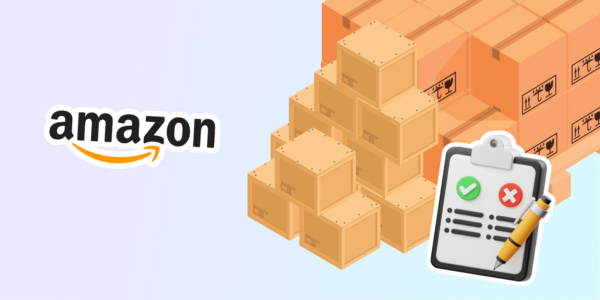
Effective marketplaces sales post-Brexit: interview with M. Bishop
The new ecommerce decade has just started. Without doubt, the 2020s will be exciting times for eBay & Amazon sellers. The ecommerce industry is growing strongly. Retail ecommerce market sales worldwide will reach $6.54 trillion in 2023 compared to $3.53 trillion in 2019, according to Statista.
However, even with promising forecasts, the transition to a post-Brexit world may create uncertainty for some online sellers trading from and with the UK. In reality, though, Brexit will bring both challenges and opportunities. The seller’s job is to adapt to the former and identify the latter.
The good news is that the growing number of online marketplaces, buyers and cross-border purchases stimulate the market’s growth. Brexit or not, this trend is unlikely to reverse any time soon. Thus, online sellers will continue to have plenty of opportunities to grow their business.
So what will the ecommerce reality be like in the 2020s? In this expert interview Mike Bishop, CEO at Webinterpret, talks about:
- Opportunities & challenges awaiting marketplace sellers in the new decade
- The actual impact of Brexit on (international) ecommerce sales (beyond speculation)
- Practical recommendations for growth-minded eBay & Amazon sellers and much more.
Download now: FREE Brexit guide

Mike Bishop, CEO at Webinterpret
How to sell effectively on marketplaces after Brexit: interview with Mike Bishop
2020 has arrived. What are the priorities for marketplace sellers for the new decade?
Mike: The new decade is definitely full of new opportunities. Ecommerce is constantly growing and is expected to make up 17.5% of retail sales worldwide by 2021 (eMarketer).
Online Cross Border Trade is growing faster than the overall ecommerce market and is forecast to continue this trend: 70% of online buyers have recently purchased from foreign sites. With increasing shopper confidence and trust in online technology, this number is expected to go up.
As a result, in 2020 and beyond, growth-minded eBay and Amazon sellers should put higher priority on making their products available to a wider circle of buyers internationally.
Merchants can also look into diversifying their sales channels in line with current ecommerce trends. For instance, today we’re observing the rise of niche marketplaces and recommerce. Social selling, in turn, attracts 45% more business opportunities.
Above all, it’s important to stay flexible & adaptable, especially now that the political and economic changes are in full swing.
In 2020 and beyond, growth-minded eBay and Amazon sellers should put higher priority on making their products available to a wider circle of buyers internationally.
One of those changes is Brexit. According to popular opinion, Brexit is synonymous with years of economic disruption. Won’t (cross-border) commerce become more difficult?
Mike: The mere thought of Brexit can send chills running down the spines of some people. Many reactions however are exaggerated, or miss the bigger picture. Let’s take an example from ecommerce in the UK. It clearly explains that the outlook is far from negative.
After the Brexit referendum, the weak pound made the UK a good-value-for-money shopping destination. As a result, the number of (international) orders grew for many British retailers, according to the IMRG MetaPack UK Delivery Index.
After the referendum retail orders in the UK rose by 11.3% in January 2017 and 32% of all orders were heading out of the UK. Of those orders, 59% were to EU countries. This happened in line with the growing trend for cross-border ecommerce.
The reality is that despite the volatile times, there’s a general enthusiasm about trading abroad. According to eMarketer, the majority of retailers in the UK, the US, Germany, France and Canada offer online sales to international buyers and more sellers plan to do so.
Furthermore, over 80% of retailers worldwide agree that cross-border trade has been profitable or that sellers have successfully increased sales as much as 1,000% after expanding their marketplace presence.
So the pessimism behind Brexit is exaggerated? Can sellers stay optimistic about it?
Mike: It’s not really a battle between pessimism and optimism, but I believe it’s more productive to be driven by the opportunities created by cross-border trade, irrespective of Brexit.
For sure, there will be changes from Brexit, such as currency fluctuations, trade deals and tariff changes. Some changes will be positive for sellers and some may be negative. But still, a large number of sellers will be hardly affected.
Finally, ecommerce is growing fast and on a global scale, which is unlikely to change any time soon. Plus, any potential negatives can be turned into an opportunity: Brexit is no exception.
What can marketplace sellers really expect after Brexit?
Mike: Today, nothing will change for online sellers. However, during the transition period from now until 31 December 2020, we will get more certainty and direction, based on the agreements and trade deals reached. The moment the new tariffs and regulations are known, sellers are able to make informed decisions and focus their future investments and daily activities.
In general, sellers that will be affected by Brexit should take a proactive approach to protect themselves against any potential disruption, e.g. by ensuring that they have enough/excess stock. If they trade across borders, relocating inventory to warehouses closer to their customers may make sense, too.
Many manufacturers will have a chance to become competitive abroad. Some merchants can improve profitability if they watch the currency situation closely and use the right moment to sell with a higher margin. There may be further advantages, depending on pricing/tariffs.
In reality, you can survive and even thrive in the face of changes. If you’re open-minded and on the lookout for opportunities, you’re likely to find them, especially in cross-border trade.
It’s more productive to be driven by the opportunities created by cross-border trade, irrespective of Brexit.
What’s the easiest way to grow online sales on eBay & Amazon in the new decade?
Mike: Sellers must be laser focused on getting the right products in front of the right people. With today’s competition, it’s necessary to combine paid and organic strategies. The fact is that today being first in organic results may not give the best results on eBay or Amazon. Due to the prominence of paid ads, the first organic result may not appear until the middle of the page, or even closer to the bottom!
As a result, to grow their sales, marketplace sellers should consider advertising. Ecommerce ad spend rose 115% in Q3 2019 vs. Q3 2018 (Marin Software). According to Amazon, 76% of Amazon shoppers use the search bar to find an item, and search advertising is a way for brands to beat competitors.
eBay & Amazon sellers should also test markets with less competition. Often these are international markets where local online sellers aren’t able to meet the local demand or offer specific products. For instance, in Italy many products have to be imported from abroad, e.g. car parts or clothes from foreign brands. In such cases, sellers can expect lower advertising costs and better ROI due to a lower level of competition.
For merchants who haven’t focused on international selling before, now may be a good time to review the opportunity: the number of options increases when sellers decide to sell internationally. This is also when they become aware of their actual sales potential, which can be truly eye-opening.
Webinterpret enables marketplace sellers to sell more effectively in international markets through localized versions of their listings. We also help merchants leverage ads on different international markets.
Download FREE Amazon Advertising guide
What are the advantages of selling internationally?
Mike: Selling in different markets is your chance to multiply your revenue. It can also turn out to be your business first aid kit in case of specific country challenges you may face, for example after Brexit.
For instance, if you lose your revenue in one market at any point, for any reason, you can research the situation in other countries to put in more effort in regions that can offer you the best possible ROI. In other words, it’s better not to put all your eggs in one basket and marketplace sellers should definitely consider expanding their country portfolio.
The reality is that plenty of new markets are there for you to explore and there has never been a better time to test them in an effective and affordable way. For example, there are automated ecommerce solutions that enable Amazon & eBay sellers to instantly expand worldwide and boost their sales.
Any potential negatives can be turned into an opportunity: Brexit is no exception. You can survive and even thrive in the face of changes.
Which markets to choose when sellers want to expand their international sales?
Mike: Cross-border ecommerce in both the UK and the EU is unlikely to cease any time soon, so there’s still plenty of sales potential in this part of the world. However, looking to sell outside of these regions as well is a good option, too.
The list of countries that sellers are considering includes mostly markets with some level of similarity and/or that have eBay and Amazon national sites, e.g. the USA, Canada, Australia, or China and emerging markets in Asia and South America.
But, as they say, the world is your oyster.
Where do you see international ecommerce in the next decade?
Mike: Ecommerce trends are moving faster than ever, so to predict what will happen even 5 years down the line is hard enough! However, as globalization and technological advances are in full swing, we have some hints of what to expect.
For example, the development of Artificial Intelligence makes it possible to combine the best of technology and the human brain. In international ecommerce, for instance, natural language processing (NLP), used to help computers make sense of human languages, is revolutionizing ecommerce translation. Thanks to such developments, online sellers can use even more efficient and effective ecommerce solutions to grow their sales.
Finally, as far as post-Brexit reality is concerned, commerce between the UK, the EU and the rest of the world will continue to grow strongly. Webinterpret will also continue to be central to this growth for its sellers, through helping them grow their sales internationally on marketplace platforms. Exciting times!

Download our FREE guide & sell more after Brexit!
Sources
Related Posts:
Ecommerce Newsletter
By clicking the “Subscribe now” button, you agree to receive our monthly e-mail newsletter and regular marketing and commercial communications by email from Webinterpret regarding marketing trends and our digital marketing services. You confirm that you have read and agreed to Webinterpret’s Terms of Service and Privacy Policy.






